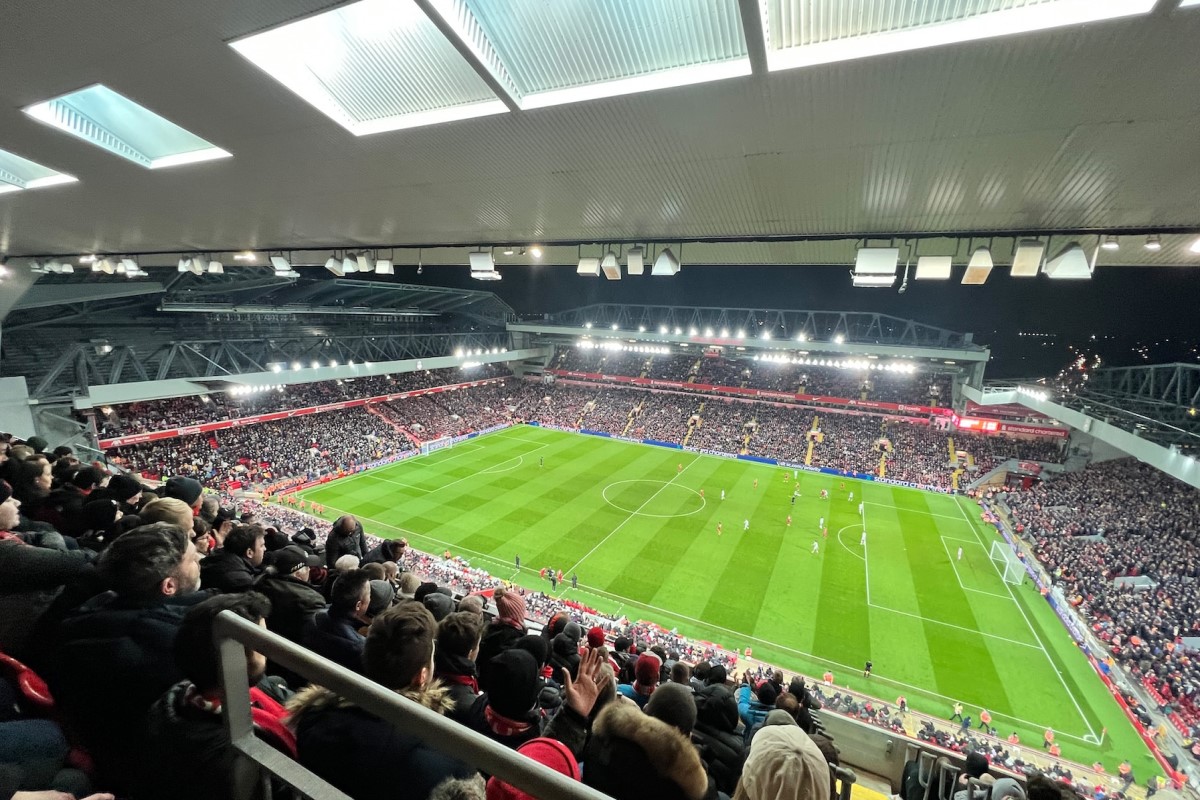Skift Take
Digital ticketing solutions for tours and attractions are seeing sports events emerge as a winning category for customer engagement as travelers continue to plan around bucket-list events.
Football fans visiting Barcelona find attending a local match as much a bucket list experience as seeing the Spanish city’s historical temple of Sagrada Familia.
That’s according to Mark McLaughlin, CEO of Coras, a Dublin-based ticket distribution platform that has partnered with teams such as FC Barcelona, Manchester City, and AC Milan.
Coras’s network of distribution partners includes the UK low-cost carrier Ryanair, U.S. carrier Frontier, Iceland’s FlyPlay, and Japanese marketplace Rakuten. The company has also just added Pegasus Airlines .
McLaughlin believes sporting events offer a unique opportunity for brands to upsell and market their core services – whether a sports event ticket is sold with flights and a hotel stay for the trip or as a single product offering to locals.
“From our experience, customers are 15-20 times more likely to buy when presented with in-path purchase offering, for example, being able to buy tickets with their flights in a single transaction,” said McLaughlin.
“There are so many different things that a customer can do in a city when they travel, so offering products that are relevant to their dates, destination, language and currency, and them being able to pay with a saved card in an existing account, reduces so much friction and drives increased purchases.”
Major Sporting Events to Plan Around
Sports events can also grow direct customer engagement, suggested McLaughlin. They create lucrative and exclusive sponsorship deals, like Turkish Airlines preparing for its second as UEFA champions league sponsor. Yet not all brands can tap marketing spends of this proportion.
The Turkish Airlines booking website does not offer any tours, attractions or sport event tickets to book, despite its extensive sponsorship deals. Skift reached out to Turkish Airlines about their UEFA sponsorship and the sale of sport event tickets, but has yet to receive a response.
Noting that the current airline distribution partners for Coras were all low-cost carriers, Mclaughlin stated “ancillary (extra charges for baggage, pre-seating and inflight food, for example), is a more important part of their revenue mix for sure.”
“These tickets are high volume compared to the number of tours an operator can sell daily. Sporting fixtures, like the Premier League also act like a specific marketing schedule,” said McLaughlin. “These tickets also come at a higher price than other experiences, and the purchase window is usually much further in advance.”
Sports tickets also require a special integration, McLaughlin added, and the company has made this a priority. “If you are going to do sports ticketing, you have to do it right. We’ve done quite a bit of technical work to do both activity tickets and sports event tickets,” he said.
McLaughlin described Coras’ “simple ticketing solutions” for tours and activities across its client base in 50 countries, and nine different currencies, much like Redeam addresses booking friction for offline attractions needing to turn paper-based systems into a smooth, digital ticketing system that removes the need to queue.
Customers can pick a seat in real-time, with price per ticket and booking fee structure transparency, as well as any restricted seating displayed. He further explained that an average booking fee starts at 10 percent and could equate to $16 dollars on a $160 ticket, as an example.
Further Reading
“Typically, most ticket purchases start with Google,” said McLaughlin. “People go to Google and search Man United tickets. But the problem with that is the first products they see are the secondary sites that have paid the highest cost per word to be listed there. These tickets are also much more expensive.”
“Airlines get the tickets at the same direct price as from the teams. And that’s the same for music and theater tickets. So the airline can obviously vary the booking fee, depending if they’re going for yield or volume. But from a customer point of view, they can see that they’re getting the same ticket price from the airlines, than if they go direct,” said McLaughlin.
U.S. Market Growth
“Our distribution in the U.S. is much smaller than in Europe since we’re European based,” said McLaughlin.
Coras has, however, completed technical integration with U.S. platform SeatGeek. He sees this as important for the platform’s long-term growth for its partners.
“SeatGeek is the system behind half the teams in the Premier League in the UK, like Man City, Liverpool and Newcastle. But as a U.S. company, they also have the Dallas Cowboys, the Pelicans, the Saints, and half of the Major League teams. That’s important because as our distribution increases in the U.S., we can then switch on those clients as easily as we can switch on a client in Europe. These systems are now global – it allows you to integrate with a single system and then turn on in multiple geographies,” said McLaughlin.
The company expects to reveal new distribution partnerships in East Africa.
UPDATE: This article has been updated to include Pegasus Airlines as a distribution partner.
The Daily Newsletter
Our daily coverage of the global travel industry. Written by editors and analysts from across Skift’s brands.
Have a confidential tip for Skift? Get in touch
Tags: airlines, attractions, experiences, football, ryanair, sports, sports tourism, tours and activities
Photo credit: Liverpool Football Club, Anfield, Liverpool, UK. Source: Unsplash
